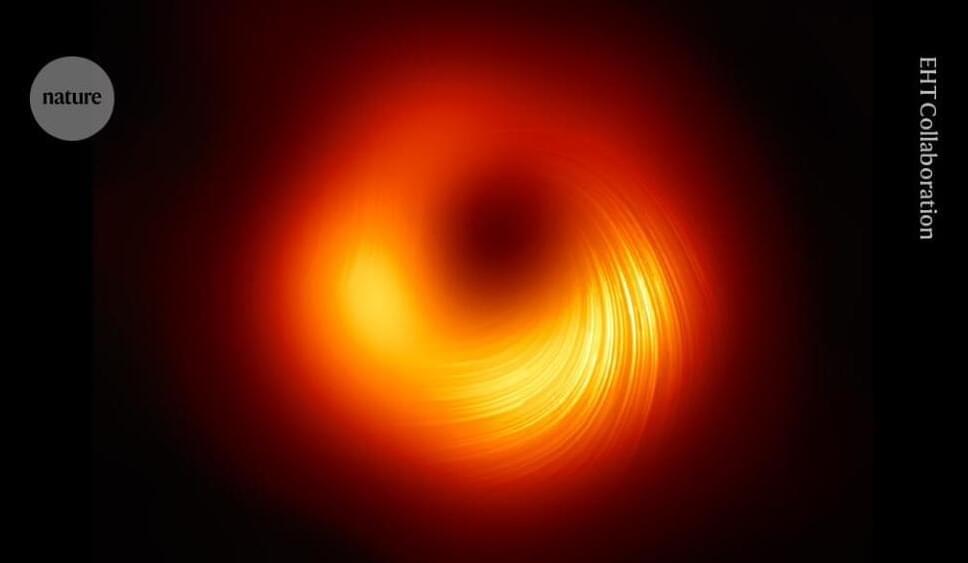In hindsight, it seems prophetic that the title of a Nature paper published on 1 March 1974 ended with a question mark: “Black hole explosions?” Stephen Hawking’s landmark idea about what is now known as Hawking radiation1 has just turned 50. The more physicists have tried to test his theory over the past half-century, the more questions have been raised — with profound consequences for how we view the workings of reality.
In essence, what Hawking, who died six years ago today, found is that black holes should not be truly black, because they constantly radiate a tiny amount of heat. That conclusion came from basic principles of quantum physics, which imply that even empty space is a far-from-uneventful place. Instead, space is filled with roiling quantum fields in which pairs of ‘virtual’ particles incessantly pop out of nowhere and, under normal conditions, annihilate each other almost instantaneously.
However, at an event horizon, the spherical surface that defines the boundary of a black hole, something different happens. An event horizon represents a gravitational point of no return that can be crossed only inward, and Hawking realized that there two virtual particles can become separated. One of them falls into the black hole, while the other radiates away, carrying some of the energy with it. As a result, the black hole loses a tiny bit of mass and shrinks — and shines.
